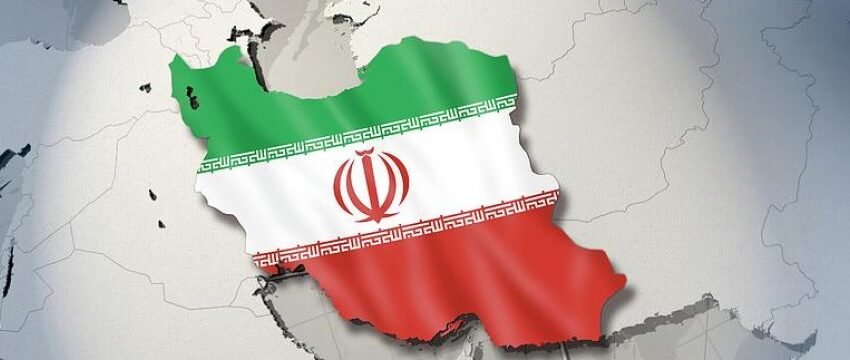Matter Labs Unveils Atlas Upgrade for ZK Stack, Promising Major
Iran Caps Stablecoin Purchases at $5,000 Per Year
(Originally posted on : Crypto News – iGaming.org )
Iran has unveiled sweeping new restrictions on stablecoin use, setting strict limits on how much citizens can buy and hold each year. The Central Bank’s High Council confirmed the rules on Sept. 27, at a time when the rial has sunk to an all-time low against the U.S. dollar.
Good to know
- Annual purchases are capped at $5,000 per person.
- Total holdings cannot exceed $10,000 in stablecoins.
- The rial recently hit 1,136,500 per U.S. dollar ahead of renewed UN sanctions.
New Policy Details
The limits apply to all users on licensed digital asset platforms and must be enforced within one month. Current holders are also required to adjust their balances.
Asghar Abolhasani, secretary of the High Council, explained the new restrictions clearly:
“From now on, the ceiling for purchasing stablecoins is set at $5,000 per user annually, and holdings cannot exceed $10,000.”
New players only. Exclusive Welcome Bonus of 350% + 150 Free Spins
Violations may lead to penalties, creating uncertainty for many traders who rely on crypto markets as a lifeline.
The Importance of Stablecoins in Iran
Stablecoins like Tether (USDT) have become essential for everyday Iranians coping with a collapsing currency and rampant inflation. They allow citizens to protect savings from devaluation and offer businesses an alternative channel for cross-border transfers amid sanctions.
For thousands, stablecoins are also a tool for income, trading, and preserving wealth in an economy where access to hard currency is tightly controlled.
The Sanctions Angle
Authorities’ concern goes beyond households and traders. Reports suggest that state-linked entities have also used stablecoins, especially USDT, to fund proxy groups, import sensitive goods, and bypass sanctions. Much of this activity reportedly flows through networks like Tron, which offer low-cost transfers.
New players only. Exclusive Welcome Bonus of 350% + 150 Free Spins
The move comes as international pressure on Iran increases. United Nations sanctions are being reimposed, and geopolitical tensions involving Israel and the United States have spurred spikes in crypto usage.
This is not the first time the government has restricted access to alternative stores of value. In past economic crises, similar caps were placed on U.S. dollars and gold in an attempt to stabilize the rial. Those efforts largely pushed demand underground, fueling black markets instead.







 Bitcoin
Bitcoin  Ethereum
Ethereum  Tether
Tether  XRP
XRP  Solana
Solana  USDC
USDC  Lido Staked Ether
Lido Staked Ether  Dogecoin
Dogecoin  TRON
TRON  Cardano
Cardano  Wrapped stETH
Wrapped stETH  Wrapped Bitcoin
Wrapped Bitcoin  Chainlink
Chainlink  Ethena USDe
Ethena USDe  Figure Heloc
Figure Heloc  Sui
Sui  Stellar
Stellar  Hyperliquid
Hyperliquid  Wrapped eETH
Wrapped eETH  Avalanche
Avalanche  Bitcoin Cash
Bitcoin Cash  WETH
WETH  Hedera
Hedera  Litecoin
Litecoin  LEO Token
LEO Token  Binance Bridged USDT (BNB Smart Chain)
Binance Bridged USDT (BNB Smart Chain)  Coinbase Wrapped BTC
Coinbase Wrapped BTC  USDS
USDS  Mantle
Mantle  Shiba Inu
Shiba Inu  Toncoin
Toncoin  Cronos
Cronos  USDT0
USDT0  WhiteBIT Coin
WhiteBIT Coin  Polkadot
Polkadot  Monero
Monero  Ethena Staked USDe
Ethena Staked USDe  World Liberty Financial
World Liberty Financial  Uniswap
Uniswap  OKB
OKB  Dai
Dai  Aave
Aave  Pepe
Pepe  Ethena
Ethena  Bitget Token
Bitget Token  Aptos
Aptos  NEAR Protocol
NEAR Protocol  Aster
Aster  MemeCore
MemeCore  Jito Staked SOL
Jito Staked SOL  Bittensor
Bittensor  Story
Story  Ethereum Classic
Ethereum Classic  Ondo
Ondo  BlackRock USD Institutional Digital Liquidity Fund
BlackRock USD Institutional Digital Liquidity Fund  Binance-Peg WETH
Binance-Peg WETH  Binance Staked SOL
Binance Staked SOL  USD1
USD1  Worldcoin
Worldcoin  Currency One USD
Currency One USD  PayPal USD
PayPal USD  POL (ex-MATIC)
POL (ex-MATIC)  Internet Computer
Internet Computer  Jupiter Perpetuals Liquidity Provider Token
Jupiter Perpetuals Liquidity Provider Token  Arbitrum
Arbitrum  Pump.fun
Pump.fun  sUSDS
sUSDS  Zcash
Zcash  KuCoin
KuCoin  Pi Network
Pi Network  Rocket Pool ETH
Rocket Pool ETH  Gate
Gate  VeChain
VeChain  Algorand
Algorand  Cosmos Hub
Cosmos Hub  Pudgy Penguins
Pudgy Penguins  USDtb
USDtb  Kinetiq Staked HYPE
Kinetiq Staked HYPE  Sei
Sei  Render
Render  BFUSD
BFUSD  StakeWise Staked ETH
StakeWise Staked ETH  Wrapped BNB
Wrapped BNB  Plasma
Plasma  Liquid Staked ETH
Liquid Staked ETH  Falcon USD
Falcon USD  Filecoin
Filecoin  Sky
Sky  Bonk
Bonk  PancakeSwap
PancakeSwap  DoubleZero
DoubleZero  Official Trump
Official Trump  Tether Gold
Tether Gold  Lombard Staked BTC
Lombard Staked BTC